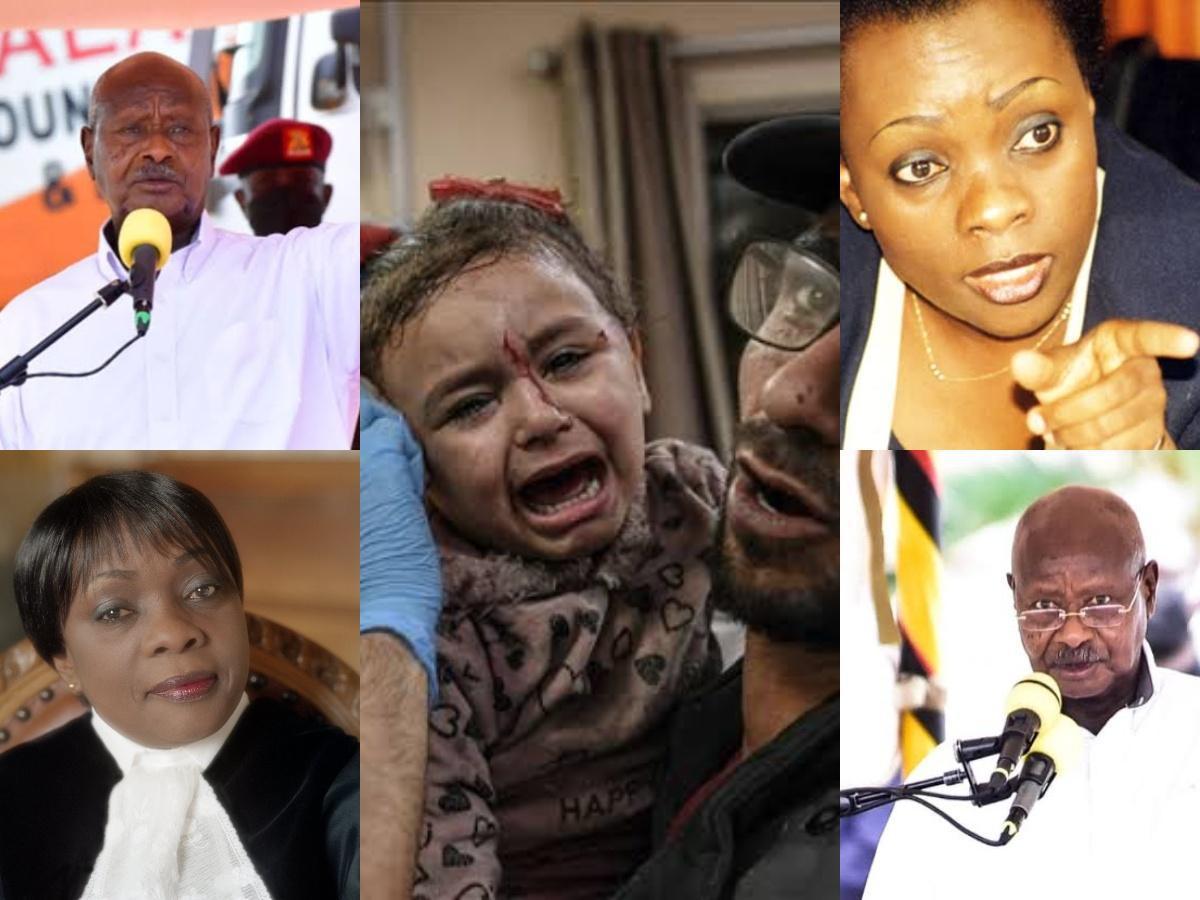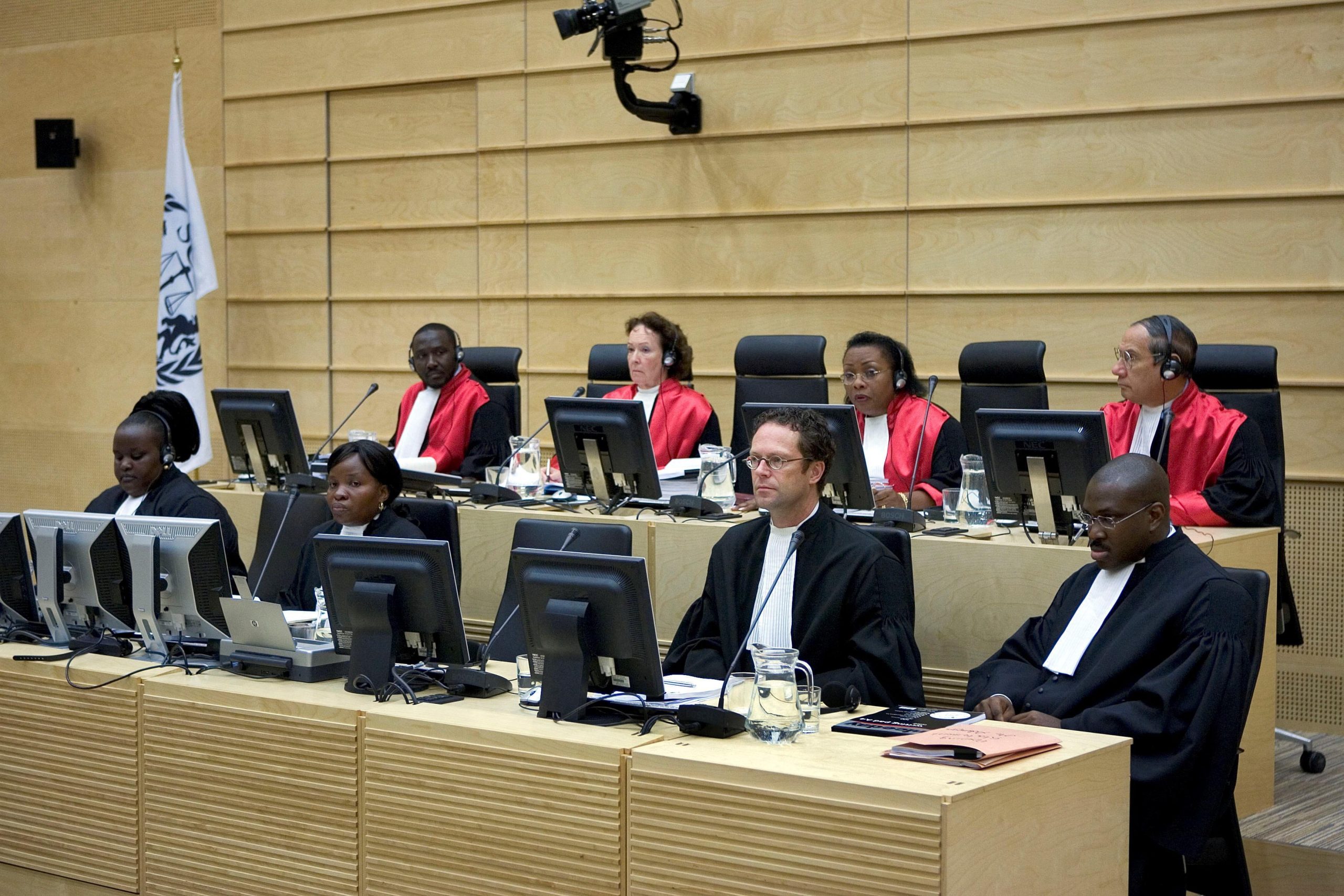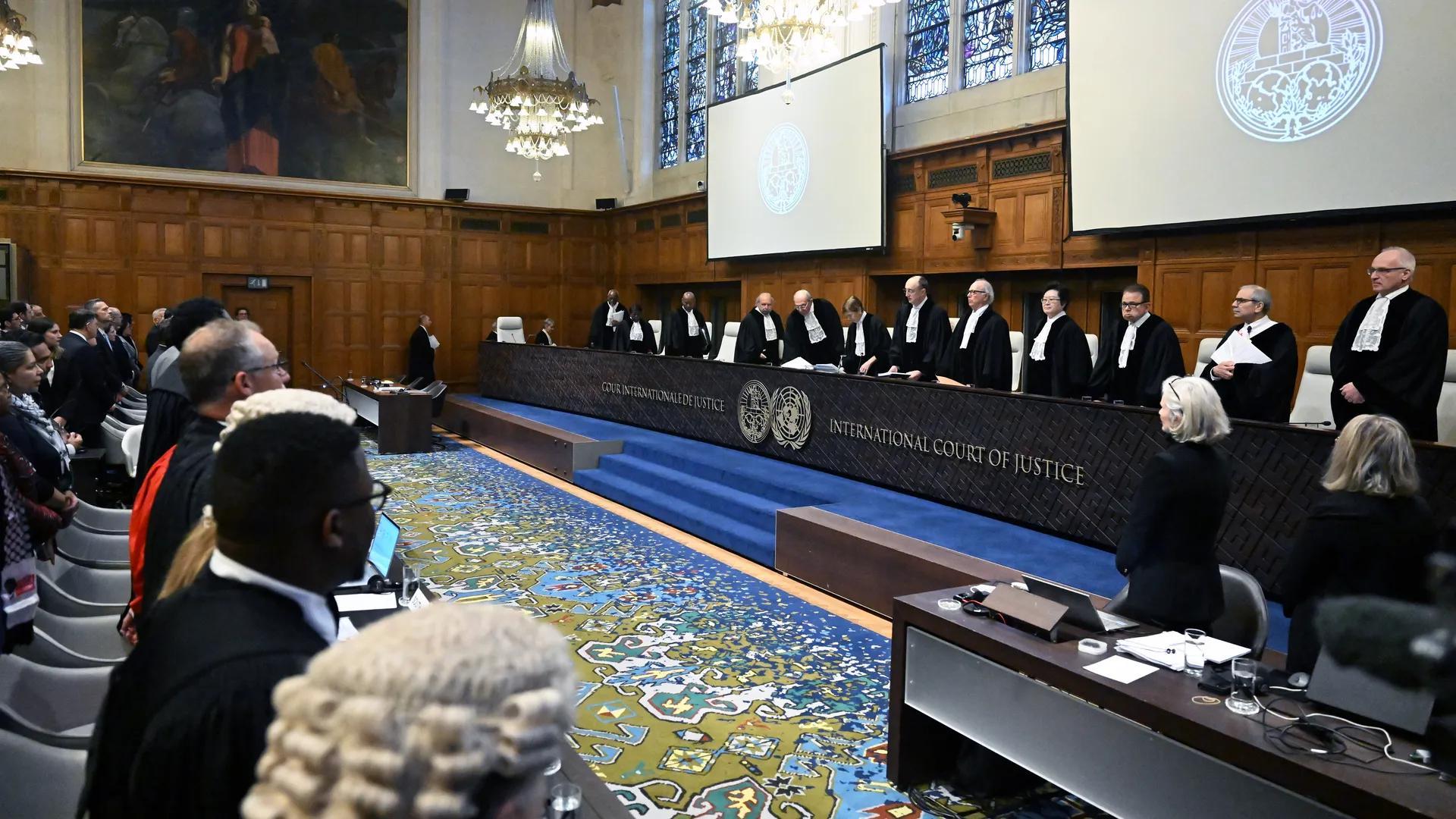Faridah N Kulumba
Africa-Press – Uganda. The Government of the Republic of Uganda has disowned the International Court of Justice (ICJ) Judge Julia Sebutinde for backing Israel in the genocide case. This followed seventeen Judges, led by an American and a Russian, and including ones each from Israel and South Africa, sitting on the panel on the 26th of this month, which dismissed Israel’s request to throw out a case accusing it of genocide in Gaza. But Judge Sebutinde decided to vote against the other judge’s decision. The emergency measures that the International Court of Justice (ICJ) ordered Israel take as part of the Gaza genocide case.
The case
Last year on 29 December, the Republic of South Africa filed a lawsuit with the ICJ requesting an injunction against Israel on the grounds that Israel’s attacks on Gaza violate the Genocide Convention. “There are ongoing reports of crimes against humanity and war crimes being committed as well as reports that acts meeting the threshold of genocide or related crimes as defined in the 1948 ‘Convention on the Prevention and Punishment of Genocide’ have been and may still be committed in the context of the ongoing massacres in Gaza,” said Clayson Monyela, spokesman for South Africa’s Department of International Relations and Cooperation. South Africa and Israel are both signatories to the convention.
The judgement
On 26 January 2024, the ICJ Court recalled the attack of 7 October 2023 on Israel with hostage-taking and loss of life, as well as the human suffering, loss of life, displacement of civilians, and damage to the infrastructure in Gaza caused by Israel. The 17-judge panel at the ICJ voted in favour of six provisional measures that order Israel to protect Palestinians, including punishing and preventing acts of genocide and allowing humanitarian aid into war-battered Gaza – but Judge Sebutinde voted against all of these measures.

The six Court orders
Israel must, in accordance with its obligations under the Genocide Convention and in relation to Palestinians in Gaza, ‘take all measures within its power’ to prevent the commission of acts prohibited in the Convention, in particular killings, causing serious physical or mental harm, the deliberate infliction of conditions of life calculated to bring about the physical destruction of the population in whole or in part, and the imposition of measures intended to prevent births. Israel must ensure that its military forces do not commit any of the acts mentioned in point 1; Israel must take all measures within its power to prevent and punish direct and public incitement to commit genocide; Israel must take immediate and effective measures to enable the provision of humanitarian relief to Gaza; Israel must take effective measures to prevent the destruction of evidence relating to allegations of acts contrary to the Genocide Convention; Israel must submit a report to the Court within one month regarding the measures it has taken to give effect to the Order.
Sebutinde’s argument
In an 11-page dissent, Judge Sebutinde argued the dispute was “essentially and historically a political one” between Israel and the Palestinians rather than a legal matter for the court. Sebutinde said that provocative statements by senior Israeli officials relied on by South Africa as evidence of genocidal intent, were “taken out of context” and referred to Hamas rather than the Palestinian people. She also argued the order to Israel to do everything possible to prevent genocide merely restates its existing duties under international law and “is therefore redundant. Sebutinde, who turns 70 next month, is serving her second term at the court. She has been a judge at the ICJ since 2012. Her appointment saw her become the first African woman to sit on the world court.
Uganda’s reaction

Adonia Ayebare, Ambassador and Permanent Representative of Uganda to the United Nations, while reacting to Sebutinde’s decision said “Justice Sebutinde’s ruling at the International Court of Justice does not represent the Government of Uganda’s position on the situation in Palestine. “Uganda’s support for the plight of the Palestinian people has been expressed through Uganda ‘s voting pattern at the United Nations,” said Ayebare. Uganda’s Foreign Affairs Permanent Secretary, Bagiire Vincent Waiswa highlighted that the Government of Uganda affirms its association with the decisions and positions of the recently concluded 19th Summit of Heads of State and Government of the Non-Aligned Movement (NĂM), held in Kampala on 19-20 January 2024, as contained in the Kampala Final Outcome Document, and the Political Declaration on Palestine. The Heads of State and Government of NAM called for an immediate humanitarian ceasefire on the siege of Gaza and reiterated the need for the initiation of processes leading to the creation of a Palestinian State with East Jerusalem as its capital and affirmed the support for the State of Palestine to become a member of the United Nations. The singular act of the Government of South Africa to haul Israel to the International Court of Justice seeking to declare Israel’s military campaign in Gaza as genocide received a lot of commendation and praise from member states. Ugandan government officials asserted that the Government categorically clarifies that, the position taken by Judge Sebutinde is her individual and independent opinion, as is the case with all other Judges, in accordance with Article 2 of the ICJ Statute. Therefore, her opinion does not in any way, reflect the position of the Government of the Republic of Uganda.
Mixed reactions
Nina Kyomuhendo, a journalist while talking to Africa-Report said “I’ve been having all respect for her Judge Julia Ssebutinde but now a bit reserved for her character. If she can’t have feelings for innocent women and children daily it’s a pity for her. Said Kyomuhendo. Isaac Bakka a senior journalist while commenting on Sebutinde’s decision on the Uganda Journalist Union forum said the ruling against Israel by ICJ does not affect the fact the Israel dealing with HAMS, the court ruling on asking Israel to protect civilians is not what Israel did not do, rather it is HAMAS which has been killing Israelis indiscriminately whether kids or disabled and women plus old people at ages from 70 to 80 years. Therefore, the South African President’s celebration only exposes him as the supporter of terrorists and HAMAS in particular, therefore my sister Justice Ssebutinde is right to have taken a different line in the ruling. Ruth Nakkazi a lawyer supported Sebutinde by saying that she is an outstanding judge and has made history by not being bullied into pleasantries. “Of what impact is the value of the ICJ’s ruling? Are you sure any of the instructions given by ICJ are going to be followed? How did the alleged Genocide begin? And who launched the escalation of this conflict? Is it Hamas that murdered thousands and kidnapped many or Israel that retaliated to defend its territory? Is the Hamas massacre also a genocide or not? What new thing did SA present that had not been yelled by civil society, world leaders, Gazans, Palestinians, etc?” she asked. She added that she failed to see the grounds of a case to the ICJ even though she is against the entire conflict. Adding that the real issue here; is; how to mediate between Hamas and Israel to end the suffering of all people in this region.
For More News And Analysis About Uganda Follow Africa-Press






